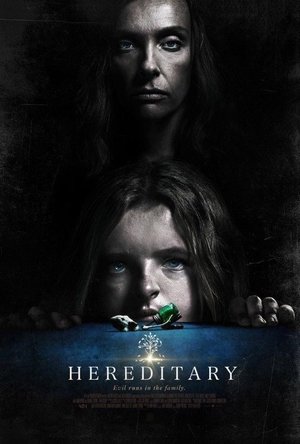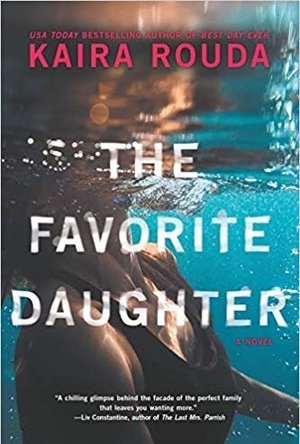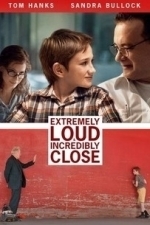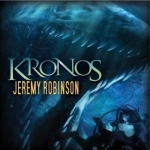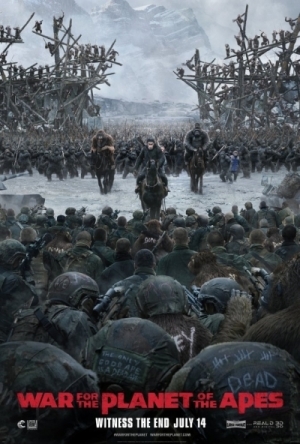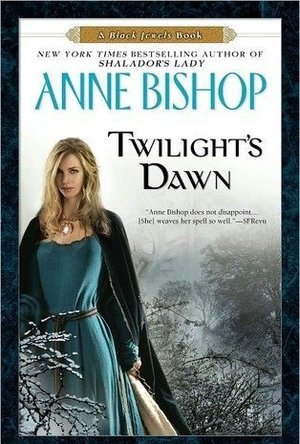Search
Search results
Debbiereadsbook (1664 KP) rated Scott (Owatonna U Hockey #2) in Books
Mar 29, 2019
much better than book one!
Independent reviewer for Archaeolibrarian, I was gifted my copy of this book.
This is book two in the Owatonna U Hockey trilogy, but you don't need to have read book one first. I have though, and found THAT book not really to my liking.
THIS one, however, I enjoyed far more.
Scott is suffering, since his brother died, and decides to self medicate with illegal steroids. After punching his best friend in the face, Scott is suspended for a whole 12 months, and is quite literally, chucked out his home. With nowhere to go, he happens to meet Hayne at a mandatory counselling session. Hayne, for reasons he cannot fathom, takes pity on Scott and the pair become inseparable. They each have their own demons, but together, they just might be able to overcome them.
Like I said, a MUCH better read, for me anyway, that Ryker. And much of that is because I didn't much care for Ryker in his book and I'll come back to that in a minute, though.
Hayne is a free spirited artist, in his final year at college. He is terrorised by his tenants, and spends all his time in his room, trying to paint his final piece. Meeting Scott, who turns out to be the muse he was missing, wasn't planned, but Hayne runs with it. Helping Scott get back to hockey seems the right and best thing to do. That Scott helps Hayne is a much added bonus.
Hayne is LOVELY!! So sweet, I wanted to punch his housemates! And the fact that he really sees Scott helps. Scott is trying to be the son his father wants, but he isn't his brother Luke. He will NEVER be Luke. His father pushes Scott away, and it takes his mother, who has been self medicating in the bottom of a bottle, to pull HER big girl panties up, and make her husband and son see that they are BOTH suffering and TOGETHER they can make some semblance of a relationship again.
Loved Hayne's mum and Mimi! Loved that they took Scott in when he needed someone the most, Hayne aside.
Back to Ryker. I did not like him in his book, but he does redeem himself somewhat here! While Scott is hiding, his friends, the ones he thought hated him, were planning an intervention, and Ryker is foremost at getting Scott to see that his friends don't hate him, they just didn't see how much he was suffering.
It does carry some darker story lines, grief, bereavement, alcohol and drug abuse, but they are all part and parcel of Scott's story, and they are very well written.
Oh, and you'll need tissues. I cried a LOT with this book!
Can't QUITE get past the first person to stretch to 5 stars, but a much better than book one:
4 stars
**same worded review will appear elsewhere**
This is book two in the Owatonna U Hockey trilogy, but you don't need to have read book one first. I have though, and found THAT book not really to my liking.
THIS one, however, I enjoyed far more.
Scott is suffering, since his brother died, and decides to self medicate with illegal steroids. After punching his best friend in the face, Scott is suspended for a whole 12 months, and is quite literally, chucked out his home. With nowhere to go, he happens to meet Hayne at a mandatory counselling session. Hayne, for reasons he cannot fathom, takes pity on Scott and the pair become inseparable. They each have their own demons, but together, they just might be able to overcome them.
Like I said, a MUCH better read, for me anyway, that Ryker. And much of that is because I didn't much care for Ryker in his book and I'll come back to that in a minute, though.
Hayne is a free spirited artist, in his final year at college. He is terrorised by his tenants, and spends all his time in his room, trying to paint his final piece. Meeting Scott, who turns out to be the muse he was missing, wasn't planned, but Hayne runs with it. Helping Scott get back to hockey seems the right and best thing to do. That Scott helps Hayne is a much added bonus.
Hayne is LOVELY!! So sweet, I wanted to punch his housemates! And the fact that he really sees Scott helps. Scott is trying to be the son his father wants, but he isn't his brother Luke. He will NEVER be Luke. His father pushes Scott away, and it takes his mother, who has been self medicating in the bottom of a bottle, to pull HER big girl panties up, and make her husband and son see that they are BOTH suffering and TOGETHER they can make some semblance of a relationship again.
Loved Hayne's mum and Mimi! Loved that they took Scott in when he needed someone the most, Hayne aside.
Back to Ryker. I did not like him in his book, but he does redeem himself somewhat here! While Scott is hiding, his friends, the ones he thought hated him, were planning an intervention, and Ryker is foremost at getting Scott to see that his friends don't hate him, they just didn't see how much he was suffering.
It does carry some darker story lines, grief, bereavement, alcohol and drug abuse, but they are all part and parcel of Scott's story, and they are very well written.
Oh, and you'll need tissues. I cried a LOT with this book!
Can't QUITE get past the first person to stretch to 5 stars, but a much better than book one:
4 stars
**same worded review will appear elsewhere**
Lucy Buglass (45 KP) rated Hereditary (2018) in Movies
Jun 20, 2019
Nature vs Nurture
As the classic saying goes… if you haven’t heard of Hereditary by now you’ve probably been living under a rock. It’s everywhere at the moment; on buses and billboards, plastered over film blogs and magazines, you name it, it’s there. It’s this season’s hottest horror film, with critics even branding it the “scariest thing they’ve ever seen”. Critical reception has been largely positive, which made me a little nervous before I went to see it for myself. When a film is this hyped up in mainstream media, it’s even more devastating if you end up disliking it.
For me, Hereditary really does live up to the hype. It’s a truly unique, harrowing film that goes beyond predictable, boring jump-scares in order to thrill its audience. The horror here is much better than that, but still packs a monumental punch. Something I really liked about this film is how it portrayed the genuine horrors of things like grief and a broken family, that real life audiences can identify with. There are scenes within this film that will probably stay with me for the rest of my life, due to how jarring and brilliantly acted they were.
Every member of Hereditary’s family is portrayed brilliantly, I was blown away by the quality of the acting and just how invested I was in each of the character’s lives and feelings. They’re the stereotypical middle-class family; mother, father, son, daughter, except here they have a much darker secret buried within. Toni Collette certainly shines as the family’s matriarch; it’s been a while since I’ve been haunted by a performance before, she truly is amazing in this film and I can’t wait to see what she does next.
Hereditary is filled with many disturbing images and an overall sense of dread throughout the entire film. The cinematography really knows how to make you feel uncomfortable and on edge, yet completely transfixed on the screen. It truly is reminiscent of films such as Rosemary’s Baby and Carrie, proving that horror stories are still able to thrive, and aren’t reduced to constant jumpy moments and excessive violence. I loved the psychological horror of the narrative, and how I’m still thinking about it even a week after watching the film. It’s the kind of film that gets under your skin and makes you think.
Ari Aster’s debut feature film goes beyond simply portraying the supernatural as terrifying, and instead taps into real life horror and all the traumatic, isolating and disturbing feelings that come with it. It’s a horror film that many can identify with, deep down, dealing with some very real psychological experiences and fears. I seriously recommend this, but I also recommend bracing yourself for a wild ride. It’s not for the faint of heart.
https://lucygoestohollywood.com/2018/07/04/nature-vs-nurture-a-review-of-hereditary/
For me, Hereditary really does live up to the hype. It’s a truly unique, harrowing film that goes beyond predictable, boring jump-scares in order to thrill its audience. The horror here is much better than that, but still packs a monumental punch. Something I really liked about this film is how it portrayed the genuine horrors of things like grief and a broken family, that real life audiences can identify with. There are scenes within this film that will probably stay with me for the rest of my life, due to how jarring and brilliantly acted they were.
Every member of Hereditary’s family is portrayed brilliantly, I was blown away by the quality of the acting and just how invested I was in each of the character’s lives and feelings. They’re the stereotypical middle-class family; mother, father, son, daughter, except here they have a much darker secret buried within. Toni Collette certainly shines as the family’s matriarch; it’s been a while since I’ve been haunted by a performance before, she truly is amazing in this film and I can’t wait to see what she does next.
Hereditary is filled with many disturbing images and an overall sense of dread throughout the entire film. The cinematography really knows how to make you feel uncomfortable and on edge, yet completely transfixed on the screen. It truly is reminiscent of films such as Rosemary’s Baby and Carrie, proving that horror stories are still able to thrive, and aren’t reduced to constant jumpy moments and excessive violence. I loved the psychological horror of the narrative, and how I’m still thinking about it even a week after watching the film. It’s the kind of film that gets under your skin and makes you think.
Ari Aster’s debut feature film goes beyond simply portraying the supernatural as terrifying, and instead taps into real life horror and all the traumatic, isolating and disturbing feelings that come with it. It’s a horror film that many can identify with, deep down, dealing with some very real psychological experiences and fears. I seriously recommend this, but I also recommend bracing yourself for a wild ride. It’s not for the faint of heart.
https://lucygoestohollywood.com/2018/07/04/nature-vs-nurture-a-review-of-hereditary/
Hazel (1853 KP) rated The Children of Hare Hill in Books
Dec 17, 2018
<i>I received this book for free through Goodreads First Reads.</i>
Set in the National Trust owned gardens in Cheshire, Scott McKenzie writes about the loss of a parent from the perspective of young children. <i>The Children of Hare Hill </i>deals with the grief and confusion of those too young to fully comprehend the impact a death has upon the remaining family members. Charlotte, aged 8, and Ben, aged 5, lost their father two years ago and now it is time to say goodbye.
McKenzie sets the story in Hare Hill Gardens, a place he loves to visit with his own children. It is here that the two protagonists are scattering their father’s ashes. Around the gardens are thirteen wooden hares that visitors are encouraged to find, something that the children enjoyed doing with their father numerous times. After their difficult task, Charlotte and Ben fall asleep in the walled garden and, on waking, discover the secret of Hare Hill.
Although still in the same place they fell asleep, Charlotte and Ben are now in a magical version of the gardens where the hares are real animals that have been turned into wooden statues. In order to release them from the spell they have to complete several tricky quests. From riddles to number puzzles the children rely on each other’s knowledge and strengths to save the hares and discover who is waiting for them at the end.
When thinking about magical lands we tend to expect witches and wizards, broomsticks and complicated spells, however that is not the case in <i>The Children of Hare Hill</i>. The tasks that befall the siblings are ones that can be solved by “normal” children with the help of their memories of their father. It is an interesting concept and a beautiful way of remembering the life of a loved one.
It is not clear who the target audience is for this novel. Presumably the ages of the characters and the shortness of the story (166 pages) are more inclined to the younger reader, however the narrative and language suggests otherwise. A child of Charlotte’s age is unlikely to read books containing words such as “serendipitous”, “reminisced” and “crescendo”. Scott McKenzie is such an intellectual writer with a beautiful way with words, yet it backfires when targeted at children.
Putting the target audience issue aside, <i>The Children of Hare Hill</i> is a delightful short story that manages to evoke many emotions in the reader. The sadness that comes with reading about death is overshadowed by the bravery of the siblings, their love for one another and the fun they have solving the riddles and tasks as they race around the gardens. Instead of dwelling on the negative feelings the characters are inevitably feeling, McKenzie focuses on happy memories, making what could have been a heart-wrenching story into a heart warming one instead.
Set in the National Trust owned gardens in Cheshire, Scott McKenzie writes about the loss of a parent from the perspective of young children. <i>The Children of Hare Hill </i>deals with the grief and confusion of those too young to fully comprehend the impact a death has upon the remaining family members. Charlotte, aged 8, and Ben, aged 5, lost their father two years ago and now it is time to say goodbye.
McKenzie sets the story in Hare Hill Gardens, a place he loves to visit with his own children. It is here that the two protagonists are scattering their father’s ashes. Around the gardens are thirteen wooden hares that visitors are encouraged to find, something that the children enjoyed doing with their father numerous times. After their difficult task, Charlotte and Ben fall asleep in the walled garden and, on waking, discover the secret of Hare Hill.
Although still in the same place they fell asleep, Charlotte and Ben are now in a magical version of the gardens where the hares are real animals that have been turned into wooden statues. In order to release them from the spell they have to complete several tricky quests. From riddles to number puzzles the children rely on each other’s knowledge and strengths to save the hares and discover who is waiting for them at the end.
When thinking about magical lands we tend to expect witches and wizards, broomsticks and complicated spells, however that is not the case in <i>The Children of Hare Hill</i>. The tasks that befall the siblings are ones that can be solved by “normal” children with the help of their memories of their father. It is an interesting concept and a beautiful way of remembering the life of a loved one.
It is not clear who the target audience is for this novel. Presumably the ages of the characters and the shortness of the story (166 pages) are more inclined to the younger reader, however the narrative and language suggests otherwise. A child of Charlotte’s age is unlikely to read books containing words such as “serendipitous”, “reminisced” and “crescendo”. Scott McKenzie is such an intellectual writer with a beautiful way with words, yet it backfires when targeted at children.
Putting the target audience issue aside, <i>The Children of Hare Hill</i> is a delightful short story that manages to evoke many emotions in the reader. The sadness that comes with reading about death is overshadowed by the bravery of the siblings, their love for one another and the fun they have solving the riddles and tasks as they race around the gardens. Instead of dwelling on the negative feelings the characters are inevitably feeling, McKenzie focuses on happy memories, making what could have been a heart-wrenching story into a heart warming one instead.
Kristy H (1252 KP) rated The Favorite Daughter in Books
Jun 21, 2019
A year ago, Jane Harris' daughter, Mary, died tragically. Ever since, Jane has been lost in a cloud of grief and anti-depressants. But with a ceremony celebrating Mary's life coming up, Jane feels it's time for her to reemerge and reengage with her family: husband David and daughter, Betsy, who is about to graduate from high school. The family lives in a gorgeous house in Orange County, California. But Jane quickly realizes that David is always busy--with work or the gym he claims--and Betsy is distant and angry. Jane adored Mary, her eldest, who had finished her first year of college before she died. But at the ceremony for Mary, she receives a note, claiming Mary's death wasn't an accident. Does someone know what happened to her daughter--and are they right? Was Mary's death not an accident?
"After a year of grieving, it's time to step back into my family, or what remains of it and that's precisely my plan."
So this review is going to be a little unpopular, perhaps, based on others I've seen. I'd like to point out that it's not a negative review, per se, just not a gushing review as so many others seem to be. I just felt a little let down by this one; it left me a little flat. I found a lot of the twists predictable and while I found the book a very compelling read, there was just something "off" that didn't make it a "wow" read.
Still, as mentioned, this is a very readable book, and it will keep you engaged. Jane is an interesting character, to say the least, even if I sometimes found her more clueless than diabolical. She is, of course, an unreliable narrator, and we are only allowed to learn things as Jane reveals them to us. As a result, we're left a little confused, never quite sure where we stand. One of the things I liked most about this book was how easy it is to get sucked into Jane's delusional world as the novel is told in a very conversational style, with her sometimes speaking directly to the reader. She's also a pretty terrible person and yet oddly fascinating.
"Without Mary to place my biggest hopes and dreams on, I'm left with Betsy."
Her relationship with her daughters is pretty messed up, to say the least, and as a result, the book can be pretty creepy and bizarre. It's definitely quite a wild ride. Still, I was a little disappointed at how much I figured out ahead of time; I would have liked to have been more surprised.
Overall, this is a quick read and it's pretty intriguing. You'll get caught up in Jane's delusions pretty easily, even if some of them are fairly easily telegraphed. Others really rave about this one, so hopefully you'll enjoy it even more than me. I still recommend it; it's an interesting read. 3 stars.
"After a year of grieving, it's time to step back into my family, or what remains of it and that's precisely my plan."
So this review is going to be a little unpopular, perhaps, based on others I've seen. I'd like to point out that it's not a negative review, per se, just not a gushing review as so many others seem to be. I just felt a little let down by this one; it left me a little flat. I found a lot of the twists predictable and while I found the book a very compelling read, there was just something "off" that didn't make it a "wow" read.
Still, as mentioned, this is a very readable book, and it will keep you engaged. Jane is an interesting character, to say the least, even if I sometimes found her more clueless than diabolical. She is, of course, an unreliable narrator, and we are only allowed to learn things as Jane reveals them to us. As a result, we're left a little confused, never quite sure where we stand. One of the things I liked most about this book was how easy it is to get sucked into Jane's delusional world as the novel is told in a very conversational style, with her sometimes speaking directly to the reader. She's also a pretty terrible person and yet oddly fascinating.
"Without Mary to place my biggest hopes and dreams on, I'm left with Betsy."
Her relationship with her daughters is pretty messed up, to say the least, and as a result, the book can be pretty creepy and bizarre. It's definitely quite a wild ride. Still, I was a little disappointed at how much I figured out ahead of time; I would have liked to have been more surprised.
Overall, this is a quick read and it's pretty intriguing. You'll get caught up in Jane's delusions pretty easily, even if some of them are fairly easily telegraphed. Others really rave about this one, so hopefully you'll enjoy it even more than me. I still recommend it; it's an interesting read. 3 stars.
JT (287 KP) rated Extremely Loud & Incredibly Close (2012) in Movies
Mar 10, 2020
Oskar Schell (Horn) and his father Thomas (Hanks) share a special bond, the pair seem inseparable. They spend most nights together reading books and solving puzzles with Thomas regaling stories of a mysterious sixth borough once part of New York.
When the 9/11 attacks tear the city apart it also rips apart the the Schell family as they come to terms with the loss of Thomas. Sandra Bullock supports as a grieving wife and a mother that has seemingly lost all control over her son. Oskar is himself a unique individual blessed with high intelligence he struggles to fill the void left by his father, but when he gains the courage to venture into his parents bedroom and his father’s closet he finds a key which leads him on a journey of self discovery and ultimate closure.
I have a bit of a gripe when it comes to child actors, their talents are almost so good it is beyond their own age and their performances can be over elaborated. Horn delivers a performance with gusto and it’s a credit to him. If occasionally annoying at times. Oskar’s journey takes him all over New York city, through its boroughs and interacting with its inhabitants all of whom have been affected by the terrible tragedy in someway.
Oskar links the key to the name Black, believing this to be a person he creates himself a map and intricate catalogue of every individual in New York by this name.He sets himself the goal of speaking to every last person, no matter how long it is going to take and records everything in a journal with photographs to accompany his experiences with them. Bullock gives an assured performance as a grief stricken and desperate mother
Max von Sydow joins him on his quest as a mysterious old man who doesn’t speak and only communicates through a notepad and pen. He himself has his own set of personal problems and its obvious from the outset just who he is. Von Sydow gives a typically brilliant performance even without the use of dialogue. The film is drawn out, too long for its own good. We’re desperate to understand just where this key fits and when the pieces of the jigsaw are finally complete we feel about the same disappointment as Oskar does.
That’s not to say the film is without its merits, and director Stephen Daldry and writer Eric Roth deal with the implications of Oskar and his problems extremely well, using flashbacks you can really begin to unravel the complexities of the 11-year olds inner psyche. I enjoyed the film but wouldn’t say I was completely comfortable with it for some parts, the ending, while closing the narrative, left me feeling somewhat annoyed and that’s a feeling that sticks with me long after the credits go up.
When the 9/11 attacks tear the city apart it also rips apart the the Schell family as they come to terms with the loss of Thomas. Sandra Bullock supports as a grieving wife and a mother that has seemingly lost all control over her son. Oskar is himself a unique individual blessed with high intelligence he struggles to fill the void left by his father, but when he gains the courage to venture into his parents bedroom and his father’s closet he finds a key which leads him on a journey of self discovery and ultimate closure.
I have a bit of a gripe when it comes to child actors, their talents are almost so good it is beyond their own age and their performances can be over elaborated. Horn delivers a performance with gusto and it’s a credit to him. If occasionally annoying at times. Oskar’s journey takes him all over New York city, through its boroughs and interacting with its inhabitants all of whom have been affected by the terrible tragedy in someway.
Oskar links the key to the name Black, believing this to be a person he creates himself a map and intricate catalogue of every individual in New York by this name.He sets himself the goal of speaking to every last person, no matter how long it is going to take and records everything in a journal with photographs to accompany his experiences with them. Bullock gives an assured performance as a grief stricken and desperate mother
Max von Sydow joins him on his quest as a mysterious old man who doesn’t speak and only communicates through a notepad and pen. He himself has his own set of personal problems and its obvious from the outset just who he is. Von Sydow gives a typically brilliant performance even without the use of dialogue. The film is drawn out, too long for its own good. We’re desperate to understand just where this key fits and when the pieces of the jigsaw are finally complete we feel about the same disappointment as Oskar does.
That’s not to say the film is without its merits, and director Stephen Daldry and writer Eric Roth deal with the implications of Oskar and his problems extremely well, using flashbacks you can really begin to unravel the complexities of the 11-year olds inner psyche. I enjoyed the film but wouldn’t say I was completely comfortable with it for some parts, the ending, while closing the narrative, left me feeling somewhat annoyed and that’s a feeling that sticks with me long after the credits go up.

Travels with My Harp: The Complete Autobiography
Book
Mary O'Hara's life story is something only the most inspired press agent could ever hope to concoct'...
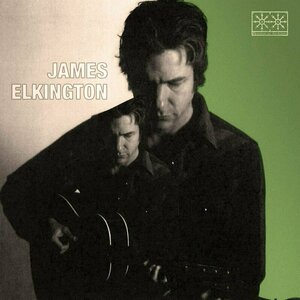
Wintres Woma by James Elkington
Album
RIYL Steve Gunn, Michael Chapman, Kevin Ayers, Bert Jansch, Ryley Walker, Jim O'Rourke, Scott...
Lee (2222 KP) rated War for the Planet of the Apes (2017) in Movies
Jul 19, 2017
Strong ending to a fantastic trilogy
Finally, after a recent lengthy spell of average or just plain disappointing blockbusters, along comes War for the Planet of the Apes to show them how it's done. The first two movies in this new trilogy have been consistently strong and enjoyable and War continues to deliver on that high quality, proving itself to be the best of the trilogy.
Despite it's name, there's not really a huge amount of war on show here. Unless of course we're referring to the inner conflict and turmoil experienced by Caesar. The movie begins with some human soldiers sneaking through the woods to try and take out the apes. They get their asses kicked and Caesar lets a few of them go in the hope that their crazed colonel (Woody Harrelson) will see just how merciful the apes are and understand that they just want to live their lives in peace and harmony. Unfortunately, things don't quite go to plan and the colonel returns later that night with a surprise attack on the apes home while they're sleeping. Some heavy ape casualties are sustained, and Caesar is pissed. Grief stricken, and out for revenge, he wants to go in search of the colonel while the rest of the apes head off to a potential new home out in the desert.
From there our story shifts down a gear, as Caesar and a small number of his trusted allies set off on horseback to track down the colonel. By this point though, you've already forgotten that these are not real apes, such is the exceptional quality of the effects on display here. The emotions are all there and the detail is perfect, totally believable. To all intents and purposes, these are real apes, and what they're experiencing feels real.
Along the way they manage pick up a young orphan mute girl and a former zoo ape called 'Bad Ape', who manages to provide much of the scarce humour found throughout the movie. When they do find the colonel and his base, the movie becomes more a prisoner of war, great escape style story rather than all out war. Yet it still manages to be extremely intense, highly emotional and hugely enjoyable.
By now, Andy Serkis and his team of performers are experts at bringing these apes to life and Caesar has now developed further than any other character in the trilogy. Serkis portrays equal amounts of rage and compassion beautifully, aided by the pixel perfect rendering of Caesar. Harrelson is the only human of any real note here, despite the large number of human soldiers under his command, and he manages to bring just the right amount of intense crazy and depth to the role.
The trilogy comes to a pretty satisfying and emotional close, with potential for further Apes movies. Overall though this has proved to be one of the strongest trilogies I've seen in a long time.
Despite it's name, there's not really a huge amount of war on show here. Unless of course we're referring to the inner conflict and turmoil experienced by Caesar. The movie begins with some human soldiers sneaking through the woods to try and take out the apes. They get their asses kicked and Caesar lets a few of them go in the hope that their crazed colonel (Woody Harrelson) will see just how merciful the apes are and understand that they just want to live their lives in peace and harmony. Unfortunately, things don't quite go to plan and the colonel returns later that night with a surprise attack on the apes home while they're sleeping. Some heavy ape casualties are sustained, and Caesar is pissed. Grief stricken, and out for revenge, he wants to go in search of the colonel while the rest of the apes head off to a potential new home out in the desert.
From there our story shifts down a gear, as Caesar and a small number of his trusted allies set off on horseback to track down the colonel. By this point though, you've already forgotten that these are not real apes, such is the exceptional quality of the effects on display here. The emotions are all there and the detail is perfect, totally believable. To all intents and purposes, these are real apes, and what they're experiencing feels real.
Along the way they manage pick up a young orphan mute girl and a former zoo ape called 'Bad Ape', who manages to provide much of the scarce humour found throughout the movie. When they do find the colonel and his base, the movie becomes more a prisoner of war, great escape style story rather than all out war. Yet it still manages to be extremely intense, highly emotional and hugely enjoyable.
By now, Andy Serkis and his team of performers are experts at bringing these apes to life and Caesar has now developed further than any other character in the trilogy. Serkis portrays equal amounts of rage and compassion beautifully, aided by the pixel perfect rendering of Caesar. Harrelson is the only human of any real note here, despite the large number of human soldiers under his command, and he manages to bring just the right amount of intense crazy and depth to the role.
The trilogy comes to a pretty satisfying and emotional close, with potential for further Apes movies. Overall though this has proved to be one of the strongest trilogies I've seen in a long time.
Rachel King (13 KP) rated Twilight's Dawn (The Black Jewels, #9) in Books
Feb 11, 2019
Anne Bishop's newest addition to the Black Jewels series is a collection of four novellas that fill in a few gaps in the growing storyline, as well as answering the question of what happens after certain central characters are gone from the series.
The first story, "Winsol Gifts", takes place a year after Daemon Sadi and Jaenelle Angelline have been married and after the events in Tangled Webs (Black Jewels, Book 6). It is a sweet story that explores Daemon's new roles as the Warlord Prince of Dhemlan, as well as Tersa's relationship with both Daemon and Lucivar. The question of whether Jaenelle can ever take back the Ebony - and if she will - is also answered, which was very satisfying for me.
The second story, "Shades of Honor", centers on Prince Falonar and the on-going damage he causes from his own prejudices. Surreal and Rainier's recoveries from injuries sustained from the evil haunted house are also central to the story. It also answers the question of how Rainier came to work for Daemon Sadi. Lucivar is also forced to learn how to better run Ebon Rih, which allows the reader to learn a bit more about Eyriens. This story also sparked my curiosity about the Dea al Mon, Surreal's heritage, since the story ended with her going to stay with them.
The third story, "Family", is about what happens to Sylvia, Saetan's lover and wife, and her sons. Through her story, the reader gets a clearer picture of what life is like for the demon-dead, as well as a glimpse of the kind of power that Tersa can wield. The reader also gets to find out if Jaenelle will ever take on the role of a Queen again, as well as how Daemon and Jaenelle deal with the issue of no children.
The final story, "The High Lord's Daughter", spans a period of decades in the telling. This story is both the most tragic and the most promising of the four novellas, as two main characters pass on, while the next generation of the SaDiablo family opens up brand-new story lines for Bishop to explore, should she decide to do so. While it was pretty obvious from the cover description that Jaenelle would die in this story, I was not satisfied with the explanation as to why she could not become demon-dead. I did find it both believable and realistic that Daemon would need to marry again, despite his own grief and stubbornness, and I was very happy that he married the woman he did, as I saw their unique bond long before this book came along. Their daughter also made me quite happy, as I can see how she could continue the magic of "dreams made flesh". I was also happy for Marian and Lucivar, as they finally got their daughter. Of course, now I have a new question that will drive me nuts until the next book - if a person's Birthright Jewel is Twilight's Dawn, then what stone does she descend to?
The first story, "Winsol Gifts", takes place a year after Daemon Sadi and Jaenelle Angelline have been married and after the events in Tangled Webs (Black Jewels, Book 6). It is a sweet story that explores Daemon's new roles as the Warlord Prince of Dhemlan, as well as Tersa's relationship with both Daemon and Lucivar. The question of whether Jaenelle can ever take back the Ebony - and if she will - is also answered, which was very satisfying for me.
The second story, "Shades of Honor", centers on Prince Falonar and the on-going damage he causes from his own prejudices. Surreal and Rainier's recoveries from injuries sustained from the evil haunted house are also central to the story. It also answers the question of how Rainier came to work for Daemon Sadi. Lucivar is also forced to learn how to better run Ebon Rih, which allows the reader to learn a bit more about Eyriens. This story also sparked my curiosity about the Dea al Mon, Surreal's heritage, since the story ended with her going to stay with them.
The third story, "Family", is about what happens to Sylvia, Saetan's lover and wife, and her sons. Through her story, the reader gets a clearer picture of what life is like for the demon-dead, as well as a glimpse of the kind of power that Tersa can wield. The reader also gets to find out if Jaenelle will ever take on the role of a Queen again, as well as how Daemon and Jaenelle deal with the issue of no children.
The final story, "The High Lord's Daughter", spans a period of decades in the telling. This story is both the most tragic and the most promising of the four novellas, as two main characters pass on, while the next generation of the SaDiablo family opens up brand-new story lines for Bishop to explore, should she decide to do so. While it was pretty obvious from the cover description that Jaenelle would die in this story, I was not satisfied with the explanation as to why she could not become demon-dead. I did find it both believable and realistic that Daemon would need to marry again, despite his own grief and stubbornness, and I was very happy that he married the woman he did, as I saw their unique bond long before this book came along. Their daughter also made me quite happy, as I can see how she could continue the magic of "dreams made flesh". I was also happy for Marian and Lucivar, as they finally got their daughter. Of course, now I have a new question that will drive me nuts until the next book - if a person's Birthright Jewel is Twilight's Dawn, then what stone does she descend to?

